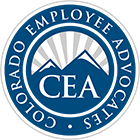Companies like people in Colorado need to follow many different laws and regulations. There are safety regulations, labor laws, wage and hour laws, environmental regulations, laws prohibiting discrimination and many other laws. However, the companies and the people who run the companies do not always follow these laws.
There are many different agencies that regulate these businesses as well. They may be able to monitor them, but it is impossible to know everything that companies are doing and illegal activity may be able to continue. However, the workers at the company may be aware of it. In some situations, these employees may feel the need to report it to the proper people within the company or the appropriate regulatory agency.
This is known as whistleblowing. Companies do not like whistleblowing and may try to punish any employee who participates in the whistleblowing. However, whistleblowers are protected from retaliation from their employer.
Examples of whistleblower retaliation
Retaliation comes in many forms. The company does not need to terminate the employee to be guilty of retaliation. Some examples of retaliation that may be more subtle are:
- Threatening or bullying the employee
- Unwarranted warnings, reprimands or poor performance reviews
- Transferring the employee to a less-desirable location
- Enforcing rules much stricter for the employee compared with how the rules are enforced for others
- Demoting the employee or denial of promotions
- Threatening deportation or other threats relating to immigration and the employees’ status in the country
- Repeated insults or intimidation of the employee
- Physical threats or threats to damage property of the employee
Regulatory agencies often need the help of whistleblowers in order to properly investigate and punish companies for their illegal activity in Colorado. To encourage whistleblowers to step up and inform the proper authorities, they protect whistleblowers from retaliation. However, companies may still retaliate, but if they do, the whistleblower may be entitled to compensation for any damages they incur as a result. This can be a complicated area of the law and consulting with experienced attorneys could be beneficial.

